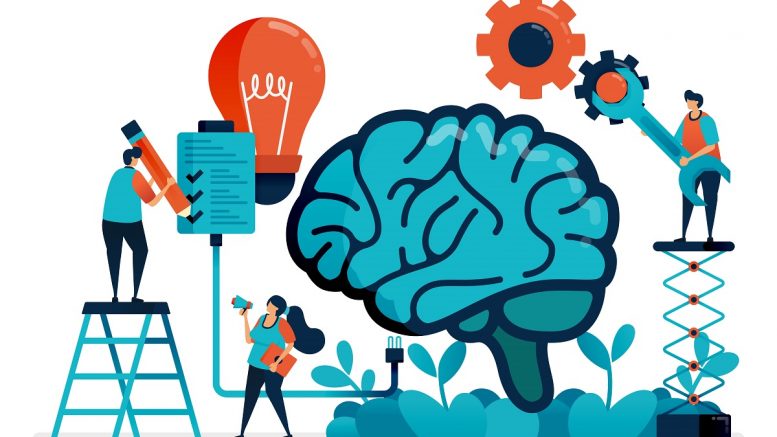A new study conducted at NYU has shown that certain computerized brain training can drive improvements in patients with persistent symptoms from Traumatic Brain Injuries (TBI).
Traumatic Brain Injury affects millions of Americans every year, with an estimated 2.5 million treated in emergency rooms. Typically, people recover fully in a few days or weeks, but for others (by one estimate 15%), the symptoms persist for years and can disrupt earning a livelihood and personal relations. An estimated two percent of Americans live with these long-term effects from TBIs.
Researchers at New York University enrolled 21 patients with chronic TBI that had persisted, on average, for more than seven years. Patients were diagnosed with mild, moderate, or severe TBI, and assigned to either an intervention group or a control group. The intervention group was asked to complete a total of 40 hours of brain training over 13 weeks (or about 3 hours per week).
Before and after the 13-week period, cognitive function was measured with standardized neurocognitive tests, and brain connectivity was measured with fMRI brain imaging. Gains were observed in standard measures of cognition, standard measures of self-reported symptoms, and in the connectivity between brain regions. The intervention used in the study was brain exercises from the commercially available web, iOS and Android app BrainHQ.
The NYU researchers found that the brain training group showed significant improvements in standard cognitive tests of attention, memory, and executive function, as well as in standard measures of self-reported symptoms, as compared to the control group. Imaging revealed significant improvement in the functional connectivity across a key network of brain regions – known as the Default Mode Network (DMN). Lower connectivity is associated with cognitive dysfunction and deficits.
This new study confirms and extends what has been seen in six prior studies of TBI and BrainHQ, in which study participants improved on measures of cognitive abilities and symptoms (some with imaging showing functional re-organization of the brain).
The BRAVE Study, published last year, looked at people with mild Traumatic Brain Injuries (mTBI) – typically from blast exposure or concussion – who had persistent symptoms, on average for more than seven years. More than 413,000 members of the US military have been diagnosed with a Traumatic Brain Injury. Of these, more than 82% are classified as mild TBI (mTBI), often called the “signature injury” of recent conflicts.
The BRAVE study enrolled 83 participants and was conducted at five military and Veterans’ medical centers. Researchers found the BrainHQ group showed a statistically and clinically significant improvement on overall cognitive function (compared to a computer games group), and this benefit persisted for at least twelve weeks after training completed.
Cognitive function improvements were nearly four times larger in the BrainHQ group than the control (as measured immediately following training) and grew to nearly five times larger (when measured again twelve weeks after training ended). On average, participants in the BrainHQ group improved on the cognitive performance composite measure by 24 percentile ranks – as though they went from the 50th percentile to the 74th percentile.
While results on the primary cognitive measure were significant, analysis of functional and self-report measures did not show significant between group differences. However, on many measures both groups showed improvement, suggesting general benefits of cognitive engagement and study inclusion. The BRAVE Study showed that these exercises are the first highly scalable intervention for persistent symptoms after injury, and that the exercises can be delivered and administered remotely.
The NYU study goes further by including people with moderate and severe TBI and showing similar results.
These type of persistent symptoms – following not just Traumatic Brain Injuries, but other types of injuries such as “chemobrain,” “cardiobrain,” and “long COVID” – are increasingly known as “brain fog.” Researchers increasingly believe that common brain mechanisms underlay the brain fog seen across these disparate conditions – which may explain the similar pattern of results seen in three studies of BrainHQ in cancer patients and seven studies in heart failure patients showing similar types of improvement to the now seven studies in brain injuries.
Brain exercises represent an important new possible pathway for treatment of many cognitive conditions that today are challenging to address. Continued work needs to be done by researchers, regulators, providers, and payers to realize the potential demonstrated across an ever-growing number of studies.
Today, there are more than 200 published studies of the exercises of BrainHQ that have shown benefits, including gains in standard measures of cognition (attention, speed, memory, executive function, social cognition), in standard measures of quality of life (mood, confidence and control, managing stress, health-related quality of life) and in real world activities (gait, balance, driving, everyday cognition, maintaining independence). BrainHQ is now offered, without charge, as a benefit by leading national and 5-star Medicare Advantage plans and by hundreds of clinics, libraries, and communities. Consumers can also try BrainHQ for free at http://www.brainhq.com.
About the author
Dr. Mahncke got his PhD in Neuroscience at the University of California, San Francisco in the Merzenich Lab, which discovered the brain remains “plastic” – capable of chemical, structural and functional change – at any age. Then, at the request of his academic mentor, Dr. Mahncke led a global team in harnessing that plasticity through the computerized brain exercises found in the BrainHQ app, which is produced by Posit Science, where he is the CEO. BrainHQ can be found at brainhq.com.

